| Četeraj Raj za chatere, bivši Off Topic |

|
|
 16.06.2017., 14:31
16.06.2017., 14:31
|
#601
|
|
Registrirani korisnik
Registracija: May 2014.
Postova: 2,182
|
Tenks Daso 
Ajd da vidimo mi konacno tu glumchinu Halita i tog glumchichicha Islera. I ostale nesretnike iz filma  |

|
|
 27.06.2017., 13:36
27.06.2017., 13:36
|
#602
|
|
You may say I'm a dreamer
Registracija: Jun 2011.
Lokacija: When nothing goes right, go left
Postova: 2,511
|
Vozdrica
Trailer filma "Daha" / "More" ( engl. ) - s titlovima na engleskom jeziku
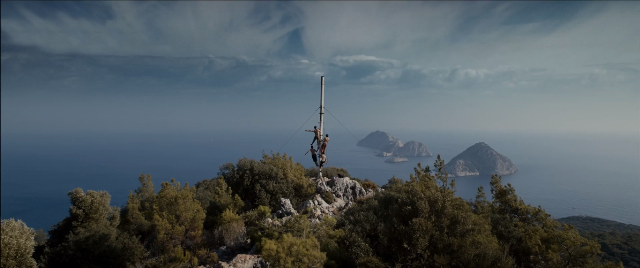
Zadnje uređivanje Daša : 27.06.2017. at 14:31.
|

|
|
 15.07.2017., 22:08
15.07.2017., 22:08
|
#603
|
|
You may say I'm a dreamer
Registracija: Jun 2011.
Lokacija: When nothing goes right, go left
Postova: 2,511
|
Vozdrica
Kratki film "Orman" / "The Jungle", u režiji Onura Saylaka i Dogu Yasar Akala, sa titlom na engleskom jeziku 
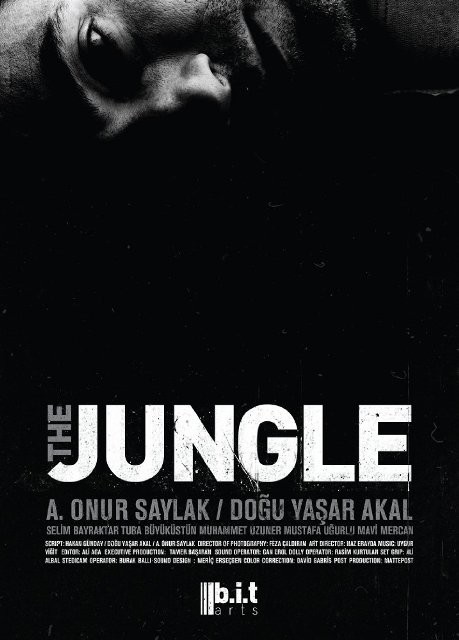
U srcu Istanbula, šumi ništavila i velegrada, Omar i njegova kćerka, nakon bijega iz ratom uništene Sirije, bore se za goli život...
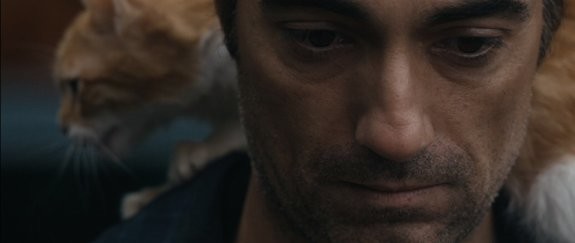
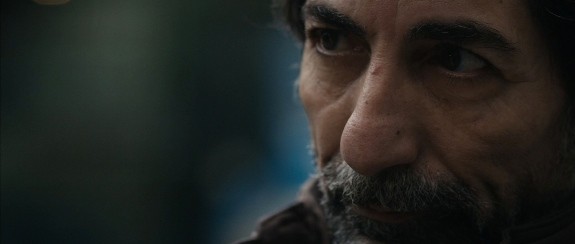 Scenario
Scenario: Onur Saylak, Hakan Gunday, Dogu Yasar Akal
Uloge: Selim Bayraktar ( Omar ), Tuba Büyüküstün ( Zeynep ), Muhammet Uzuner ( Dundar ), Mustafa Ugurlu...
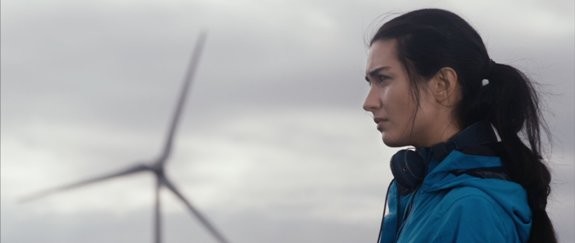
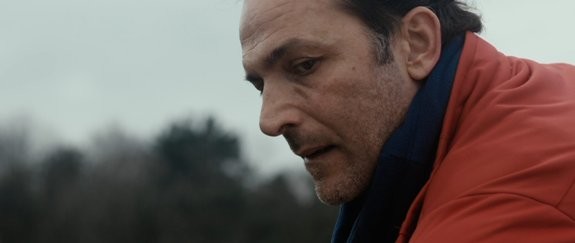
|

|
|
 17.07.2017., 05:56
17.07.2017., 05:56
|
#604
|
|
Registrirani korisnik
Registracija: Mar 2017.
Postova: 295
|
Da li bi mogla opet stavit link za film ili mi poslat pp? Ovaj mi nece otvorit... Hvala
Sent from my Redmi 3 using Tapatalk
|

|
|
 17.07.2017., 19:19
17.07.2017., 19:19
|
#605
|
|
Registrirani korisnik
Registracija: Aug 2011.
Lokacija: Hrvatska
Postova: 2,549
|
Quote:
CrveniLeptiric kaže:

Da li bi mogla opet stavit link za film ili mi poslat pp? Ovaj mi nece otvorit... Hvala
Sent from my Redmi 3 using Tapatalk
|
Ne znam koji je link bio, ali evo na Vimeo  https://vimeo.com/143110981
https://vimeo.com/143110981
__________________
Not only that we live among the stars...the stars live within us ...
|

|
|
 18.07.2017., 13:33
18.07.2017., 13:33
|
#606
|
|
Registrirani korisnik
Registracija: Mar 2017.
Postova: 295
|
Hvalaaaa!
Sent from my Redmi 3 using Tapatalk
|

|
|
 03.08.2017., 15:02
03.08.2017., 15:02
|
#607
|
|
Registrirani korisnik
Registracija: Nov 2014.
Lokacija: Zagreb
Postova: 20
|
Pozdrav  ima li negdje prijevod filma Ikimizin yerine sa Serenay Sarikaya? znam da se pricalo o trailerima...
__________________
Başarı için dört şey: çalış, dua et, düşün ve inan :)
|

|
|
 07.08.2017., 13:05
07.08.2017., 13:05
|
#608
|
|
...ja virujem u anđele...
Registracija: Feb 2013.
Lokacija: y si mi destino está en ese camino, me lo llevaré...
Postova: 5,107
|
Quote:
Miki35 kaže:

Pozdrav  ima li negdje prijevod filma Ikimizin yerine sa Serenay Sarikaya? znam da se pricalo o trailerima... |
ima
https://openload.co/f/DxZDJeA42L8/U_...i_moje_ime.mp4 |

|
|
 10.08.2017., 10:53
10.08.2017., 10:53
|
#609
|
|
...ja virujem u anđele...
Registracija: Feb 2013.
Lokacija: y si mi destino está en ese camino, me lo llevaré...
Postova: 5,107
|
Završeno je snimanje filma Martıların Efendisi.
Režiser je Mehmet Ada Öztekin, scenarist Meriç Demiray.
U glavnim ulogama su Mehmet Günsür, Bige Önal, Timuçin Esen, Nejat İşler, Barış Yıldız, Hakan Kurtaş, Ezgi Coşkun.
U filmu također sudjeluju Mehmet Esen, Sarp Akkaya i Aras Bulut İynemli.
Premijera će biti 22. prosinca 2017.  
 |

|
|
 20.08.2017., 21:53
20.08.2017., 21:53
|
#610
|
|
Registrirani korisnik
Registracija: Nov 2014.
Lokacija: Zagreb
Postova: 20
|
Hvalaa! Film je predobar. Serenay je još jednom pokazala da je vrhunska glumica, a i Nejat Isler nije prošao ne zamijećen...sve u svemu, odlican film! 
__________________
Başarı için dört şey: çalış, dua et, düşün ve inan :)
|

|
|
 02.10.2017., 16:17
02.10.2017., 16:17
|
#611
|
|
You may say I'm a dreamer
Registracija: Jun 2011.
Lokacija: When nothing goes right, go left
Postova: 2,511
|
Vozdrica
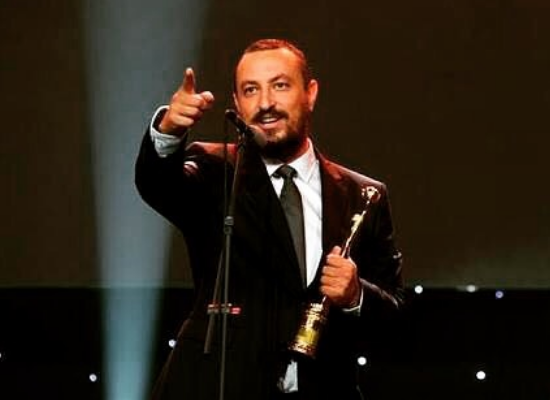
Dugometražni igrani redateljski prvijenac Onura Saylaka film "Daha" / "More" ( engl. ) / "Više", na jučer završenom 24. Uluslararası Adana Film Festivali / 24. međunarodni filmski festival u Adani, u Ulusal Uzun Metraj Film Yarışması Ödülleri / National Feature Film Competition Awards / u nacionalnoj selekciji, osvojio je četiri nagrade:
- SİYAD En İyi Film Ödülü / Nagrada Asocijacije turskih filmskih kritičara za najbolji film: "Daha" (Onur Saylak)
- Yılmaz Güney Ödülü / Nagrada Yılmaz Güney: "Daha" (Onur Saylak)
- Adana İzleyici Ödülü / Nagrada publike za najbolji film: "Daha" (Onur Saylak)
- Umut Veren Genç Erkek Oyuncu Ödülü / Nova nada turskog glumišta / Najbolji mladi glumac: Hayat Van Eck za ulogu 14-godišnjeg dječaka Gaze u filmu "Daha"
U filmskom magazinu "The Hollywood Reporter" izašla je veoma zanimljiva recenzija filma "Daha".
Quote:
"An impressively controlled and complex debut" by Boyd van Hoeij
Turkish actor Onur Saylak ('Autumn') casts young Hayat Van Eck opposite veteran Ahmet Mumtaz Taylan ('Once Upon a Time in Anatolia') in his impressive directorial debut.
A film about a 14-year-old boy helping out his father at work in a rural outpost on the sea would probably feature gorgeous landscapes but wouldn’t necessarily make for an interesting story. But Gaza, the protagonist of the hard-hitting Turkish drama More (Daha), isn’t just any teen, and his father, involved in smuggling people from the war-torn Middle East into nearby Greece, doesn’t just have any old job. Turkish actor Onur Saylak (Autumn) makes an auspicious debut as a director here, turning Hakan Gunday’s ink-black novel of despair into a film that’s a hard sit but that suggests an awful lot — awful being the operative word — about the world we live in today.
After its world premiere in competition at the recent Karlovy Vary International Film Festival, this should travel far and wide and drum up significant interest for whatever Saylak decides to do next as a director.
Ahad (Ahmet Mumtaz Taylan) is a heavy-set man with an equally heavy brow who exploits opportunities wherever he sees them and who expects unquestioned loyalty from the handful of people he works with, including his most loyal aid, Gaza (Hayat Van Eck), his teenage boy. The adolescent, with vivid and alert eyes and a can-do attitude that is probably more rooted in his relative innocence than in his character, is curious about the world and a good student. He’s been secretly testing for a good school in faraway Istanbul, though Dad isn’t very interested in his academic results, telling him to “f— school,” and that’s hardly the first sign he’s not an ideal parent.
Ahad — which, when read backwards, spells Daha, the film’s Turkish title — owns a small truck that he nominally transports fruit and vegetables with along the coast. But the vehicle is also used to take especially Syrian refugees from a nearby marsh to the large but dark basement underneath Ahad’s garage and from there, when the weather allows it, onto a boat that will take them to nearby Greece. Refugees generally seem to stay a couple of days in transit in the underground store room, during which Gaza is charged with making them food and distributing water bottles.
The task isn’t an easy one, but initially Gaza seems to tackle it like any complex challenge at school. There are cultural and language barriers — Syrians don’t speak Turkish and Turks don’t speak Arabic — but the boy manages to do a good job and even tries to improve the refugees’ living standards somewhat by reorganizing the cellar. Whether to show his appreciation or to try and convince him to stay at home rather than leave him behind and move to the big city, Ahad allows Gaza to smoke and drink and feel like he’s an adult. He even offers him to become a partner, rather than an apprentice, in his booming refugee business.
Neither of the men is a big talker, so Saylak, who co-penned the adaptation with Dogu Yasar Akal and Gunday, has to use other means to communicate what the men are thinking and how their characters are evolving. One of the main conduits of information is their physical reaction to some extreme occurrences, starting with one of the film’s most intense sequences, in which Dad drags a female refugee from the basement into their home one night to rape her. This has happened before and is amply foreshadowed, so it is not much of a surprise when it occurs. What does surprise is the way in which Saylak stages the rape, suggesting its extremely violent impact on both the poor refugee and the perpetrator’s son while keeping the actual rape entirely offscreen.
As the woman tries to escape the horror, Ahad finally manages to catch her and he brutalizes her in the corridor while director of photography Feza Caldiran stays in Gaza’s tiny bedroom. As if to literally block out what’s happening, the upset teen has closed his bedroom door and has sat down against it, with first the woman banging on the door for help and then a horrific pounding heard as Ahad has his way with her right behind the door. Gaza, who is the only one in the frame, can’t help but put his hands over his ears, a gesture that at once suggests how aggressive the assault is — the soundwork is appropriately terrifying — but which simultaneously reduces Gaza to something of a child, as he knows what’s happening but won’t do anything about it but pretend he can’t hear it.
There are more scenes that rely on other things than dialogue for their very visceral impact, though Saylak doesn’t always know how to exploit them for maximum impact. A rap song that Gaza has heard from some local boys, for example, seems to toughen his resolve and at one point serves as a way to prep him for a possible confrontation with his father. But the sequence — one of many that showcase the impressive and raw talents of Van Eyck — is all setup and no payoff, as Gaza, chanting the song’s chorus and mock-fighting, works up the courage to see eye-to-eye with his brute of a father. Ahad then arrives to confront his son, but Saylak suddenly skips ahead to the next, seemingly unrelated scene.
There are a few other small missteps like this, as well as some elements that are unnecessary. They include a sporadic voiceover from the older (but never seen) Gaza that reeks of literary pretension and actually distances the viewer more from the 14-year-old’s point-of-view rather than bringing him closer and a couple of very specific time-jumps — “78 days more” — that not only sound awkward in English (perhaps the nod to the title makes more sense in Turkish?) but don’t really add anything. Even so (spoiler ahead), More remains a tautly structured, carefully crescendoing story of a young boy full of promise whose potential and innate goodness are slowly being ground to a pulp by those around him who, and this is the real tragedy, in turn once probably were bright young things themselves. The bitter irony of becoming a heartless human while handling refugees that are escaping worse situations on their way to what they hope will be a better life makes More not only hard to watch but also announces Saylak as a very gifted storyteller who can handle complex material with impressive directorial confidence.
For the record, the film received no state funding from Turkey and was made only with private backing.
|
Zadnje uređivanje Daša : 02.10.2017. at 16:53.
|

|
|
 02.10.2017., 17:01
02.10.2017., 17:01
|
#612
|
|
You may say I'm a dreamer
Registracija: Jun 2011.
Lokacija: When nothing goes right, go left
Postova: 2,511
|
vozdrica
^
Predložak za film "Daha" je istoimeni roman mladog turskog pisca Hakana Gundaya, koji je i koscenarista filma, uz Onura Saylaka i Dogua Yašara Akala.
Hakan Gunday je 2015. godine, za roman "Daha", osvojio prestižnu međunarodnu književnu nagradu Prix Médicis étranger i tako stao uz bok mnogim, širom svijeta poznatim, književnicima koji su dobitnici iste. Roman "Daha" preveden je na mnoge jezike.
Recenzija romana u "The New York Times"
Quote:
In "More", Dispatches From Hell by a Human Trafficker - Books of The Times by Michiko Kakutani, Oct. 17, 2016.
This disturbing new novel by Hakan Gunday, one of Turkey’s leading young writers, is like a visit to a Hieronymus Bosch hell: terrifying scenes of suffering, starvation, sadism, depravity and the agonies associated with combat zones. “More” recounts the story of a boy named Gaza who works with his father, a human trafficker, and it conveys the suffering of refugees and migrants as they try to make their way from war-torn countries like Afghanistan and Syria through Turkey and eventually on to Greece and the wider world (that is, if they survive a cascade of perils, one more awful than the next). It is also the narrator’s coming-of-age story, starting at 9 — a dark fable that traces the metamorphosis of a bright schoolboy into an appalling monster.
The importance of this novel — which won the French Prix Médicis Étranger award — lies in its horrific portrayals of refugees fleeing desperate situations, sometimes leaving home with a lifetime’s possessions in a single plastic bag, only to find themselves in another inferno, preyed upon by unscrupulous smugglers and thugs. Such passages powerfully convey the plight of a record number of refugees today — the United Nations estimates that 65.3 million people were displaced from their homes by conflict and persecution at the end of 2015 — with the visceral, emotional detail that reports from policy groups rarely possess.
The cynical narrator of “More” mocks the hopes and dreams of the refugees he and his father are transporting and extorting: “We carried to paradise those who’d escaped from hell. I believed in neither. But those people believed in everything. From birth, practically! After all, they assumed: If there is famine-afflicted, war-wracked hell on earth, there must surely be a heaven as well. But they were wrong. They’d all been played for fools. The existence of hell wasn’t necessarily proof of heaven.”
Instead, these poor souls are locked by Gaza and his father in a wretched “hell pit large enough for 200 people to fit in, provided they sucked in their bellies and stayed close to one another” — while they await transport to the next stop, a wait that could be for two days, or seven, 14 or more. There is precious little food and water, and the stink of sweat and urine and excrement is suffocating. Fights and gladiatorial contests break out among these desperate people, with Gaza maliciously fomenting rivalries and hatreds, which he observes with clinical, almost sociological detachment.
The sawdust on the pit’s floor becomes a symbol of all the wretchedness and violence Gaza and his father inflict on their human cargo, and casually shrug off. “The whole world should be covered in sawdust!” Gaza thinks. “That would make it easier to sweep up entrails spilled by knife, sword, or lead, or the blood from the rape of girls by baton, prick, or fist, everywhere in the world. Because sawdust was magic! It absorbed everything and was cleared away with the sweep of a mop.”
Mr. Gunday (pronounced GUNE-die) suggests that Gaza’s cruelty is rooted in the abuse he suffered as a boy and the horror he witnessed almost daily, as his father’s helper. Gaza was raped at the age of 10, grew up with his killer father as a role model, and accidentally killed a man himself — a refugee named Cuma — by forgetting to turn on the air-conditioning in a transport truck. Cuma had been one of the few people to show Gaza any kindness by drawing a picture on a piece of paper, then folding the paper, origami-style, into a toy frog.
Cuma remains a voice inside Gaza’s head. But the more suffering Gaza witnesses and inflicts, the more depraved he becomes. He extorts sex from a young refugee girl, bullies a man into promising him a kidney when he can’t produce cash, and has sex with a corpse. These passages sometimes devolve into labored imitations of Céline — so willfully perverse and repetitious that they gradually lose their shock value, becoming gratuitously stomach-turning. What incentive is there to read all these repellent passages about a heartless ogre?
It’s when Mr. Gunday pulls back a bit and shows how a bright child could evolve into such a nihilistic beast that the novel becomes a more complex, Dostoyevsky-like inquiry into man’s capacity for evil. Most people in Mr. Gunday’s dark world, reeling from a pandemic of hate, are driven by primitive Darwinian survival instincts. Only refugees like Cuma — some of those whose lives are most at risk — seem capable of empathy and still hold in their hearts hopes for a better life.
|
Zadnje uređivanje Daša : 02.10.2017. at 17:12.
|

|
|
 02.10.2017., 17:01
02.10.2017., 17:01
|
#613
|
|
You may say I'm a dreamer
Registracija: Jun 2011.
Lokacija: When nothing goes right, go left
Postova: 2,511
|
Vozdrica
^
Povodom svjetske premijere i uvrštavanja filma "Daha" u zvaničnu selekciju / nominacija za najbolji film, na Internacionalnom filmskom festivalu u Karlovim Varima, Onur Saylak je dao intervju za filmski magazin "Variety"
Quote:
Karlovy Vary: Onur Saylak on the Impact of People Smuggling in Europe by Ed Meza
Turkish actor-filmmaker Onur Saylak’s feature debut as director, “Daha” (More), explores the impact of human smuggling on the life of Gaza (Hayat Van Eck), a teenage boy living in a small coastal town on the Aegean Sea. Saylak, who made his acting debut in Ozcan Alper’s critically acclaimed 2008 political drama “Autumn” (Sonbahar), spoke to Variety about his inspiration for the film, based on the novel by Hakan Gunday, and the effects of the ongoing refugee crisis, not only on Turkey, Europe and across the Atlantic, but also on the universal value of human life. “More” screens in competition at the Karlovy Vary Film Festival, which runs June 30-July 8.
Variety: What was it about Hakan Gunday’s book that inspired you to adapt it for film?
OS: The greatest illusion of today’s world is convincing ourselves that we know everything. For example, we think that we know so much about the immigration crisis that it is like a closed file. However, such a tragedy gains a new dimension and changes shape every passing day. The interesting side of the book “Daha” (More) is the point of view that tells the story. From this point of view, the same story might have been told in a concentration camp, because the basis of the story is the process of losing the value of human life.
Variety: In telling the story of a boy who is transformed by smuggling refugees, Gunday’s book deals with horrific subject matter. Did you have to make changes to the story to make it more suitable for cinema and also to make the main character more sympathetic?
OS: As Hakan said about the “horrific subject matter” in the novel, “No fictional story is more horrific than the evening news.” I did not think that I needed to make a special effort to make the main character at the age of 14 be more sympathetic. What could be more sympathetic than a child? This is a character that resembles child soldiers. It is not the brutality of these children in the war that should be questioned, but rather why the Kalashnikovs are in the hands of the children in the first place.
Variety: Günday is also credited as a co-writer on the screenplay. How closely did you work with him on the film?
OS: Writing a script together with the author of the book was a great gift for me. I think we are a team that understands and complements each other well. In working on our first feature-length project, we discussed each stage of the film.
Variety:What can “More” teach people about the refugee crisis, whose effects are not only being felt in Turkey and Europe but also in North America?
OS: Monster populism emerges in crisis situations when democracies cannot respond to current problems. And populism can turn everything into a political tool, including people. This means that immigrants today are a political boost for Turkey and Europe, even for the U.S. It can be seen that it is a contract between two wholesaler merchants, if we look at the agreement to stop immigrants between Turkey and Europe. Human rights require individual cases, not wholesale approaches. The story of Gaza shows us how we can see these millions of people as inanimate beings. It shows how a person can destroy another person. Perhaps most importantly, it reminds us that today, in behaving in such a way to immigrants, in our own societies, we are also pitting ourselves against each other. And at the same time it shows how important the individual approach is to the immigrant crisis. That is, governments can set policies on the issue, but the film tells us that it is not a political decision whether or not to help a person. Nowadays, even opening the doors of our homes to people in difficult situations is unfortunately a revolutionary move.
Variety: To what extent did you come into contact with real refugees while making the film?
OS: During shooting we encountered real immigrants and most of them were new to Turkey. Their experiences and what they shared add a lot in the sense of film realism.
Variety: How significant is the refugee smuggling business in Turkey?
OS: When we look at Europol data, we see the existence of a wide range of industries, from terrorist organizations and the mafia to local criminal gangs and government officials. Smuggling in Turkey, which has borders with countries like Iran, Iraq and Syria, which are in constant crisis, is a fundamental enterprise, changing products only – sometimes smuggling drugs, sometimes cigarettes, sometimes people. Turkey’s east is full of war and hunger, and the west is in peace and relative prosperity. This means that it is impossible for human trafficking to grow in Turkey. Turkey is a corridor that is burning on one side and relatively serene on the other.
|
|

|
|
 10.10.2017., 11:47
10.10.2017., 11:47
|
#615
|
|
...ja virujem u anđele...
Registracija: Feb 2013.
Lokacija: y si mi destino está en ese camino, me lo llevaré...
Postova: 5,107
|
|

|
|
 19.10.2017., 20:59
19.10.2017., 20:59
|
#616
|
|
Registrirani korisnik
Registracija: Nov 2013.
Postova: 12,274
|
|

|
|
 20.10.2017., 15:05
20.10.2017., 15:05
|
#617
|
|
Registrirani korisnik
Registracija: Nov 2014.
Lokacija: Zagreb
Postova: 20
|
Ekipica, znam da nisu tema serije, al nisam nigdje našla...ima li neko link serije sa prevodom sa Serenay i Ozanom "Fi"? 
__________________
Başarı için dört şey: çalış, dua et, düşün ve inan :)
|

|
|
 21.10.2017., 06:46
21.10.2017., 06:46
|
#618
|
|
fırfırlı♥cadı
Registracija: Apr 2011.
Lokacija: naSađena
Postova: 21,428
|
Quote:
Miki35 kaže:

Ekipica, znam da nisu tema serije, al nisam nigdje našla...ima li neko link serije sa prevodom sa Serenay i Ozanom "Fi"?  |
http://www.saprevodom.net/category/serije/turske/fi/ |

|
|
 22.10.2017., 11:55
22.10.2017., 11:55
|
#619
|
|
Registrirani korisnik
Registracija: Nov 2014.
Lokacija: Zagreb
Postova: 20
|
Quote:
TheWitch kaže:

|
Hvala ti! 
__________________
Başarı için dört şey: çalış, dua et, düşün ve inan :)
|

|
|
 22.10.2017., 21:08
22.10.2017., 21:08
|
#620
|
|
...ja virujem u anđele...
Registracija: Feb 2013.
Lokacija: y si mi destino está en ese camino, me lo llevaré...
Postova: 5,107
|
Izašao je teaser filma Kaybedenler Kulübü Yolda.
Premijera filma je 18.3.2018.
Produkcija TMC/Erol Avci, scenarij i režija Mehmet Ada Öztekin, u glavnim ulogama Nejat İşler  i Yiğit Özşener.
Film istog naslova već je snimljen 2011., s istim glumcima, istim režiserom i također iste produkcije. Sad slijedi potpuno nova priča.
I Nejat ga je najavio na twitteru
|

|
|
 |
|
Sva vremena su GMT +2. Trenutno vrijeme je: 09:16.
|
|
|
|

